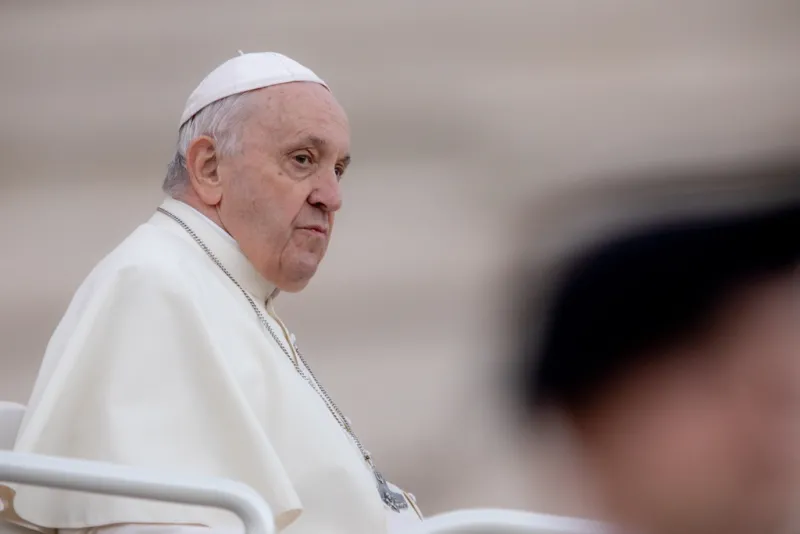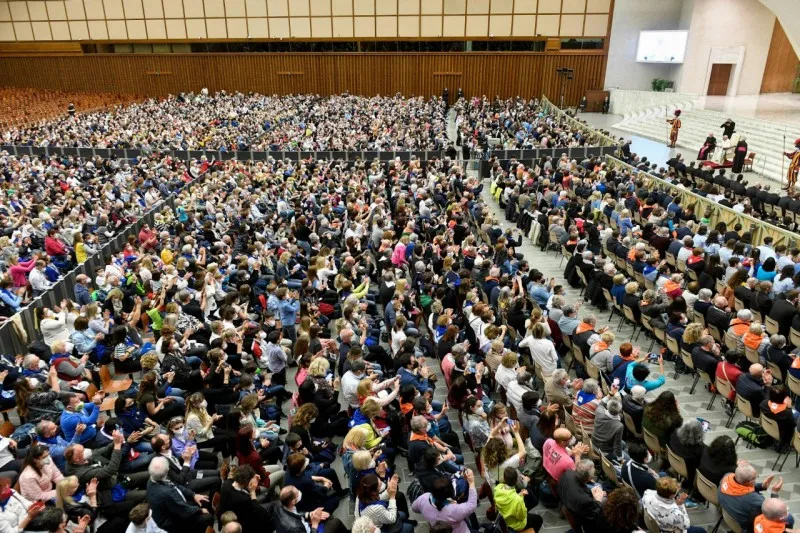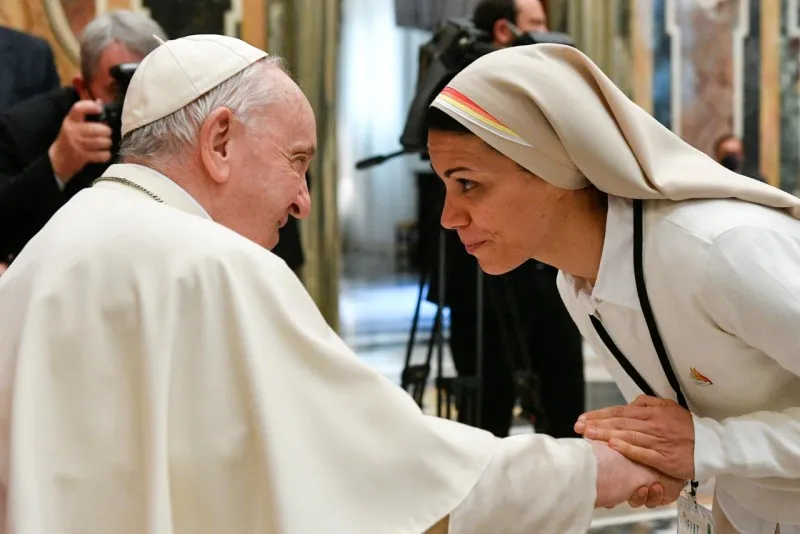
Vatican City, Apr 27, 2020 / 06:00 am (CNA).- The homeless “risk paying the heaviest price” amid the coronavirus crisis, Pope Francis has said in a message to street newspapers.
In a statement dated April 21 but released by the Holy See press office April 27, the pope noted that the pandemic posed a dire threat to the more than 100 publications sold by the homeless worldwide.
Thousands of people depend for their livelihoods on the sale of street newspapers, he said.
“For many weeks the street newspapers have not been sold and their sellers cannot work,” he observed. “I want to express my closeness to journalists, volunteers, people who live thanks to these projects and who in these times are working with many innovative ideas.”
The pope expressed confidence that, despite the present difficulties, “the great network of street newspapers in the world will come back stronger than before.”
“Looking at the poorest people, in these days, can help us all to become aware of what is really happening to us and of our true condition,” he said.
“To all of you, [I offer] my message of encouragement and fraternal friendship. Thank you for the work you do, for the information you give and for the stories of hope you tell.”
This is not the first time that Pope Francis has shown his support for street newspapers. In 2015, he gave an interview to a representative of the Dutch paper Straatnieuws.
Straatnieuws is currently appealing for donations. A message on its website says: “The corona crisis has forced us to stop the distribution of Straatnieuws. So sellers are out of newspapers, out of income. We want to support them. For that, your donation is very much needed.”
The Big Issue, a street newspaper founded in the U.K. in 1991, has launched an appeal to support vendors and to ensure that the magazine weathers the pandemic.
StreetWise, a street magazine sold in Chicago since 1992, is seeking $300,000 to “sustain and subsidize” its vendors.
A statement on its website says: “With declining sales, our vendors need support now so they don’t lose their hotel rooms, single room occupancies or apartments and end up on the streets or in a shelter. And because many of them are in immunosuppressed conditions they could get very sick or even die.”
The website quoted Pete Kadens, StreetWise’s chairman emeritus, as saying: “This is literally the difference between life and death for our vendors and fellow Chicagoans — I cannot stress that enough.”
If you value the news and views Catholic World Report provides, please consider donating to support our efforts. Your contribution will help us continue to make CWR available to all readers worldwide for free, without a subscription. Thank you for your generosity!
Click here for more information on donating to CWR. Click here to sign up for our newsletter.







Life is a precious gift.